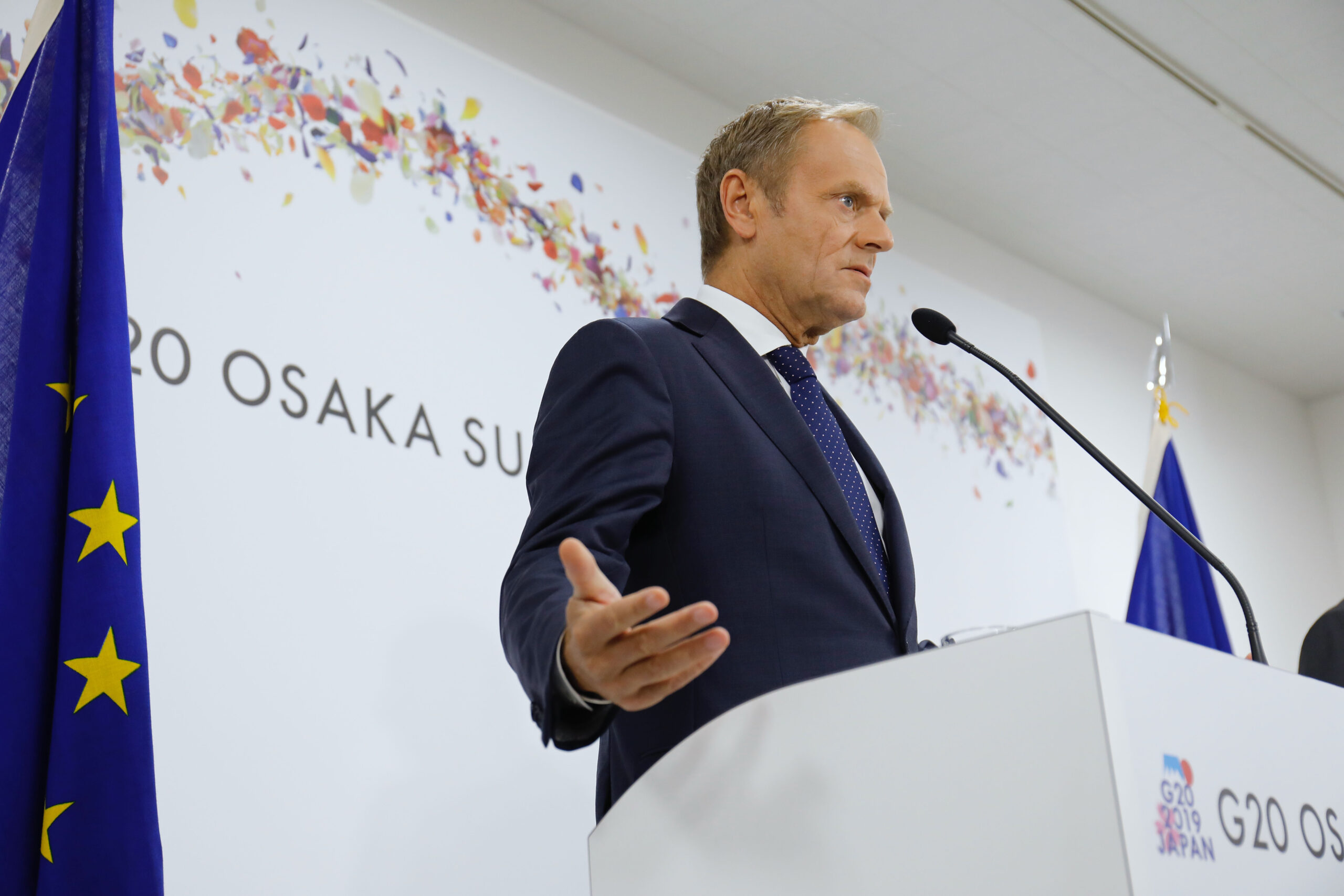Because the Tusk government in Poland will not have a peaceful life

Tusk's government in Poland will be a tripartite one, generally center with a bit of left, composed of the liberal-conservatives of Tusk (Civic Coalition), the centrists of the current president of the Sejm Szymon Holownia (Third Way) and the socialists of New Left
Now there can no longer be any twist : this is the week of Donald Tusk's return. After the vote of no confidence in Moraviecki's so-called two-week government (266 votes against compared to 190 in favour), it now falls to the former president of the European Council, former head of government from 2007 to 2014, with the task of forming the new executive. He was nominated by parliament itself yesterday evening with 248 votes in favor and 201 against.
And it will take little for him to present his program and ministers, since in the days in which the President of the Republic Andrzej Duda was unfolding his melina by slipping into the dead end of a Morawiecski-bis without numbers, Tusk was weaving the thread of his majority, agreeing with the others two former opposition parties strategies and names.
In a couple of days the institutional steps could be concluded. In the morning the new person in charge presents the program to the deputies and in the evening he will get the green light from them. Then on Wednesday the swearing-in ceremony in front of the man who promises to be his main antagonist in the coming months, President Duda.
WHAT THE ANTI-RUSSIA COMMISSION SAID ABOUT TUSK
In recent days, shortly before being dismissed from the Sejm, the "anti-Russian influence" commission, a Pis stunt to discredit the former president of the European Council, had issued a partial opinion according to which Tusk and four other ministers of his previous government should not have held public office because they were suspected of intelligence with Moscow. The opinion is indeed an opinion, as the provision relating to the disqualification from holding public offices present in the first version of the specific law has ceased to exist, but it still allows the Pis to continue its narrative of Tusk as the enemy of the homeland.
In the political circles of Warsaw there was even speculation on the hypothesis that the President of the Republic Duda could continue his obstructionist action, appealing to the partial opinion of the commission and refusing to accept Tusk's oath. But if up to now Duda has nevertheless moved within the Constitution (he broke with the practice which had seen presidents entrust the office to the one who could obtain a majority, which in the case of Mazowiecki-bis was excluded, but it is not prohibited from nominating in the first instance a member of the party that received the most votes), a refusal towards a prime minister appointed by the SJM and voted by him would open up an institutional clash full of risks.
CONCILIATING WORDS FROM THE PRESIDENCY
From the presidency, after Duda had used belligerent tones in recent days to the point of saying that Tusk would never be his prime minister, conciliatory words also arrived. “After the candidate prime minister receives a majority of votes in the Sejm, the commission's recommendation will have no impact on his oath,” Marcin Mastalerek, Duda's chief of staff and his top political advisor, told Polish media, “if a prime minister gets a majority, the president will certainly accept the oath and the oath will take place.”
It will be a tripartite government, generally center with a bit of left, made up of the liberal-conservatives of Tusk (Civic Coalition), the centrists of the current president of the Sejm Szymon Holownia (Third Way) and the socialists of the New Left.
THE DIFFICULTIES OF THE TUSK GOVERNMENT
After eight years of national-conservative governments and after a month and a half of obstructionism by President Duda, the change promised by Tusk is therefore ready to leave its moorings. But it won't be smooth sailing, especially in the first few months. “Saying goodbye to the old establishment will be a very painful and very expensive process for Poland,” declared the next prime minister, “Pis has decided to use the last few weeks to devastate and destroy the Polish state, a waste of time and money in which an attempt was made to install a sort of fifth column of the Pis in all possible sectors".
The first point will therefore be to recreate a reliable team within the public administration. “We will have to deal with the recovery very quickly and very decisively,” Tusk promised, “we will fix everything together and right the wrongs so that everyone, without exception, can feel at home.”
Meanwhile, the new prime minister's debut should be on friendly terrain. If things go as planned, and President Duda does what his chief of staff has assured, tomorrow will close the long handover that will allow Tusk to represent Poland at the Council of the European Union on Thursday 14 December. In Brussels they are convinced that the change of power will put an end to the long-standing dispute between the EU and Poland, for example over the controversial judicial reform and the allocation of billions in frozen EU funds. Tusk, also thanks to his experience as president of the European Council from 2014 to 2019, has built and maintained good relations and during the election campaign he repeatedly underlined that he wanted to "rebuild" Poland's position in Europe. There will be celebrations in Brussels, while the return to Warsaw promises to be full of commitments and also obstacles.
This is a machine translation from Italian language of a post published on Start Magazine at the URL https://www.startmag.it/mondo/governo-tusk-polonia/ on Tue, 12 Dec 2023 06:35:21 +0000.
